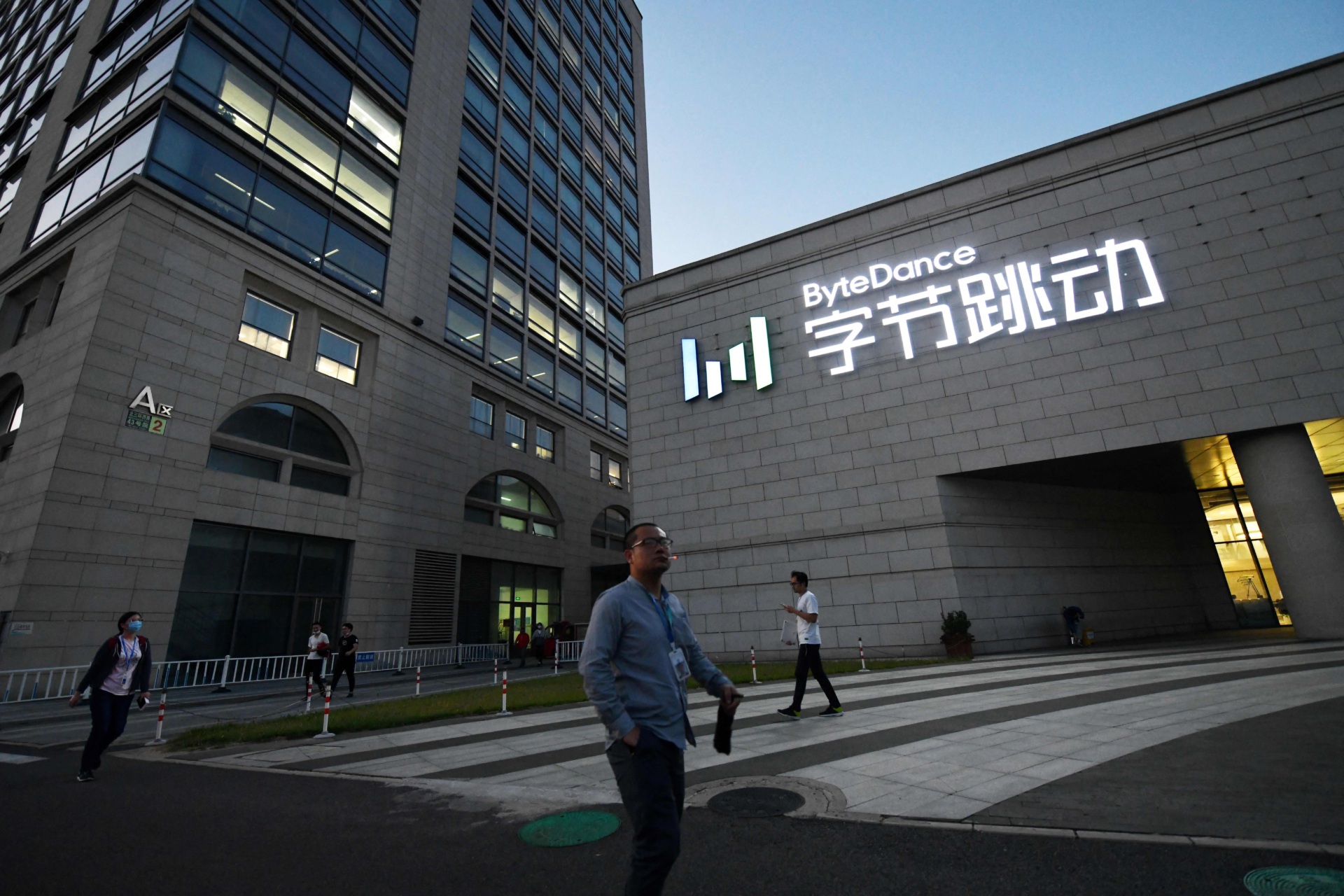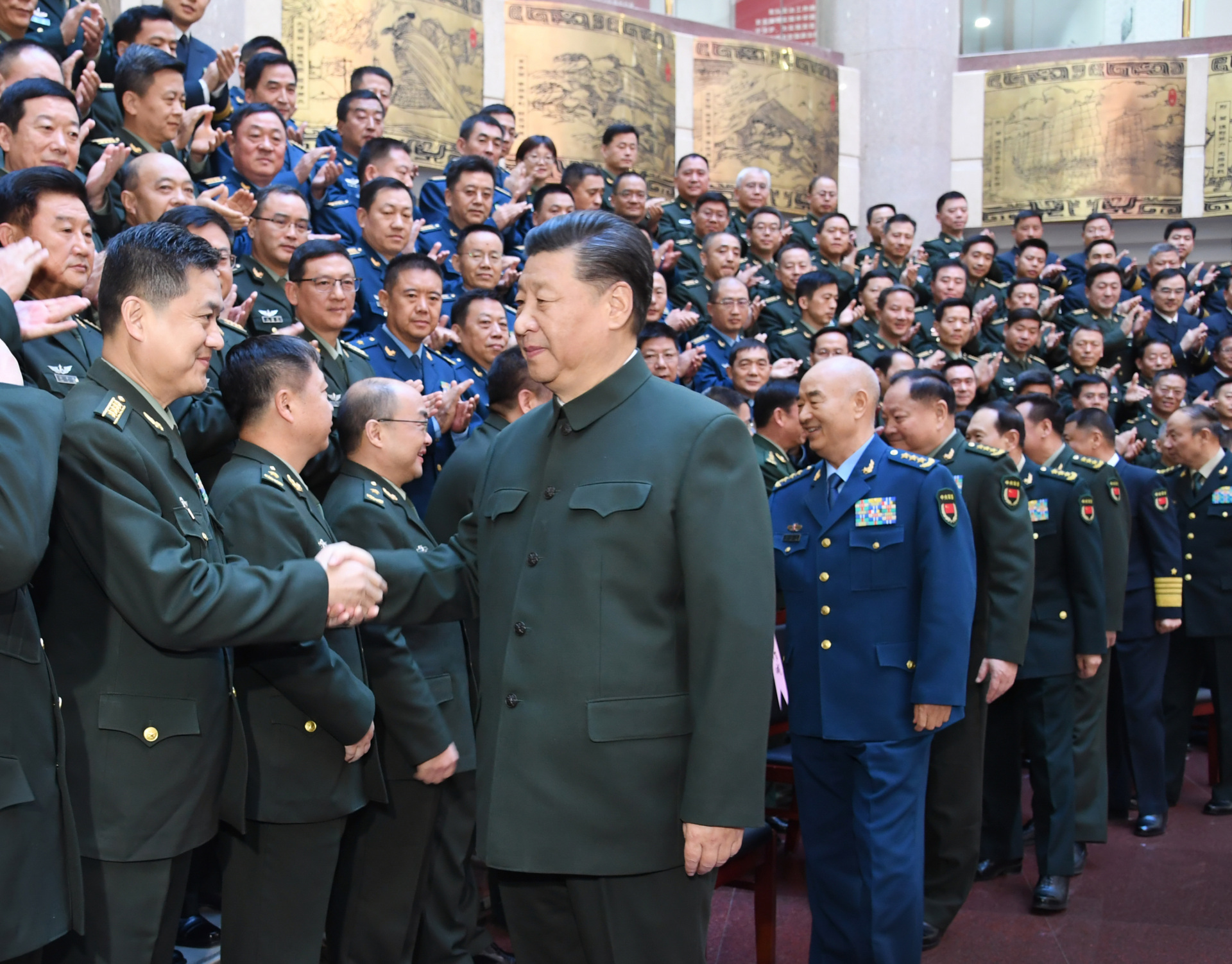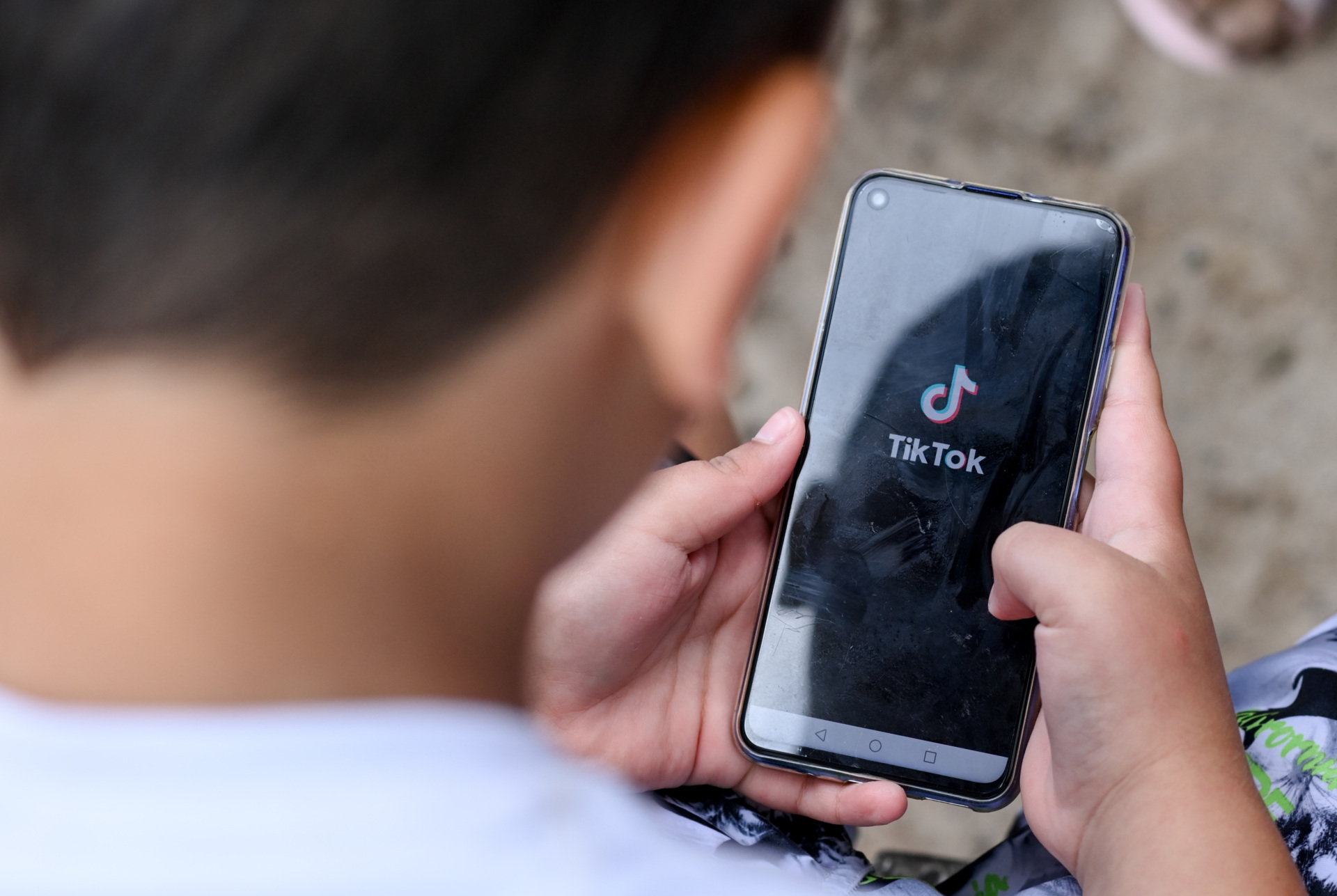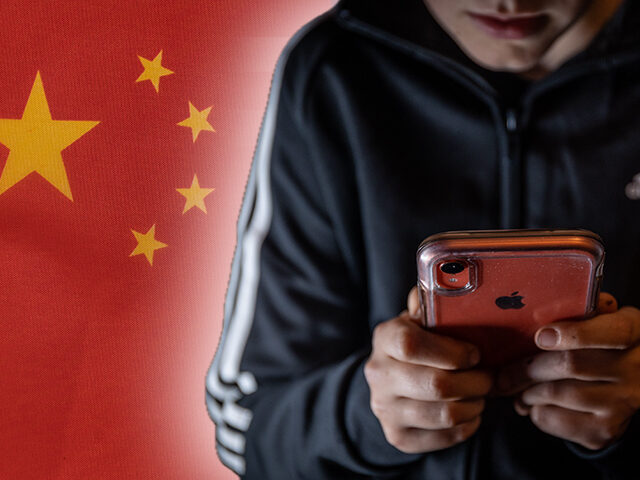The Chinese Communist Party (CCP) is using TikTok as a “modern day Trojan Horse” to inject its propaganda into the minds of America’s youth, according to restricted Chinese military journals uncovered in Peter Schweizer’s new book: Blood Money: Why the Powerful Turn a Blind Eye While China Kills Americans.
In Blood Money, Schweizer, a Breitbart News senior contributor and the President of the Government Accountability Institute, reveals the words of Chinese strategists themselves, who tout using TikTok in “information-driven mental warfare” against the United States.
As Schweizer notes, TikTok is run by the company ByteDance, which is “wedded to the Chinese Communist Party military-intelligence-industrial complex.” While the app has “penetrated the heart of America’s culture, becoming a central part of the lives of our children and young adults,” the Chinese government does not permit the app for its own population, he writes. Instead, the CCP harnesses the app’s addictive quality to target and shape the minds of young Americans for its own purposes, all while designating TikTok’s powerful algorithm as a top secret “national security asset.”

The headquarters of ByteDance, the parent company of video sharing app TikTok, in Beijing, China, on September 16, 2020. (GREG BAKER/AFP via Getty Images)
In one of the restricted journals, Colonel Dai Xu, a professor at China’s top military academy, People’s Liberation Army (PLA) National Defense University (PLA-NDU), wrote that the real battle between the United States and China is “information-driven mental warfare” and compared apps such as TikTok and social media platforms to a “modern day Trojan Horse.”
Another leading Chinese PLA strategist, Zeng Huafeng of the National University of Defense Technology (NUDT), wrote of a cognitive, or mind, war on the United States and proposed how to defeat the U.S. without firing a shot.
Schweizer writes:
Zeng defines the “cognitive space” as “the area in which feelings, perception, understanding, beliefs, and values exist” and argues that this is where the battle can be won. To that end, he said, Beijing must use “information and popular spiritual and cultural products as weapons to influence people’s psychology, will, attitude, behavior and even change the ideology, values, cultural traditions and social systems.” According to Zeng, these cultural tools, including apps, video games, and films, should be used to “target individuals, groups, countries, and even people around the world.”
Zeng further argued that Beijing can win “mind superiority” through several means, including:
- “Perception manipulation” via propaganda, by changing how people look at the present
- “Cutting off historical memory” by warping their views of their own country’s past so people will be open to changing their values
- “Changing the paradigm of thinking” by targeting people to change the way they view problems and thereby changing their beliefs
- “Deconstructing symbols,” by getting people to reject certain traditional symbols and thereby modifying a nation’s identity
“The ultimate goal is to manipulate a country’s values and achieve strategic goals without an actual overt military battle,” Zeng added.

Chinese Communist Party Leader Xi Jinping meets with all members of a training session for heads of military academies and schools at the National Defense University of the People’s Liberation Army in Beijing, China, on Nov. 27, 2019. (Li Gang/Xinhua via Getty) (Xinhua/Li Gang via Getty Images)
Strategists cited in Chinese Disinformation Efforts on Social Media advocated for “subconscious messaging” instead of overtly political propaganda, and using a soft touch to influence young people in the West.
Schweizer also cites “Communicating Our Military’s Advanced Military Culture to the World” by Xu Sen, which states:
“With regard to Western audiences, we need to conscientiously filter the content of communication, finding more points of resonance and common ground . . . even in the case of positive propaganda we also need to be adept at “softening” the content. For example, using stories to convey things, “translating” viewpoints into stories, and concealing them in stories, . . . we should adopt open and emotional methods.”
CCP strategists in an “Analysis of Modern Network Media Warfare in the Perspective of Intelligent Technology” added that propaganda is most effective when it can be directed to “impressible persons” through entertainment.
“Entertainment is the main motivation for Generation Z content consumption,” said Peng Zhen-gang, the deputy director of the Propaganda Department, in “Research on International Communication Strategies and Practice Paths of Generation Z.” By better understanding those they mean to propagandize, the CCP can “explore effective communication strategies and paths, [and] improve the ability to set agendas.”

iStock/Getty Images
Chinese propagandists also noted that propaganda is more potent for young Western people when it comes from many sources instead of one. They compared the phenomena to “multiple voices in a choir communication subject sings its own melody.” As Schweizer writes, “the key is to simulate a community — a peer group — as TikTok does.”
“Content control is becoming more important,” said analyst Liu Ying, in “The Advantages, Predicaments, and Approaches of International Communication of “Polyphony”: New Media,” noting that “emotional incitement . . . can affect public opinion more than facts and truth.”
Schweizer found that the Chinese government actually funded a study of “digital propaganda and opinion manipulation in social media platforms,” which found that “emotional content can easily lead the audience to have the illusion of ‘independent thinking’ and attribute irrational emotions to ‘righteous indignation’ or ‘empathy,’ which intensifies the value of delusion.”
“What message will that chorus sing? Its members speak freely among themselves of their motive,” Schweizer writes. “Their goal is to ‘strengthen the overseas promotion of the Communist Party of China and guide the international community to form the correct [view of the Communist Party and of China],’ Shen Haixiong, a deputy minister and senior propagandist, observed.”

(Jens Kalaene/Getty Images)
TikTok’s addictiveness and constant stream of short, often over-stimulating videos makes for a powerful source of propaganda. One PLA propaganda journal stated, “Younger PLA propagandists increasingly realize the popularity of short videos online, and TikTok is the best example of this so far.”
A Chinese government study on online manipulation further noted that online propaganda is a “highly concealed propaganda method,” and “its effect can far exceed traditional propaganda.” The study’s authors argue that such propaganda could even “affect the social stability and political security of a target country or region.”
“The evidence is clear: Chinese psychological warfare strategists have Americans, particularly young Americans, in their crosshairs. They believe that not only are young people easier to influence but the effects of the propaganda messaging are longer lasting,” Schweizer writes. “The Chinese government is devoting serious amounts of resources to understanding how to manipulate young users. The Communist government recently opened an external propaganda office to target Generation Z audiences overseas.”
“Chinese propagandists also see social media tools such as TikTok as a way to sway elections in the United States and around the world,” he continues. “One official wrote that Beijing should ‘exploit big data analysis, AI processes, bots and astroturfing, grasp the different personalities of voters and realize large-scale guidance of public opinion and changing their [political] orientation.”’
However, Schweizer notes that “despite its links to the Chinese propaganda apparatus, TikTok has thrived with the help of American celebrities and thought leaders who are either ignorant or ambivalent about TikTok’s true nature.”
The first celebrity to promote TikTok was the late-night talk show host Jimmy Fallon, according to Blood Money.
“There’s a really cool app I’ve been getting into lately called TikTok,” Fallon told millions of Americans watching his show. “Do you guys know that?”
“If you don’t have it, download it,” he instructed.

Singer Shakira and host Jimmy Fallon during the “Watch It Once TikTok Challenge” on the Tonight Show on May 16, 2022. (Todd Owyoung/NBC/NBCU Photo Bank via Getty Images)
Schweizer continues, noting other celebrities who promoted the CCP-linked app:
What Fallon didn’t tell his audience was that he—not The Tonight Show itself—had forged a partnership with the Chinese company and created a series of TikTok “challenges” designed to grow interest in the app. The daytime talk show host Ellen DeGeneres soon followed with an equally glowing account on her show. The rapper Cardi B, for a large fee, posted some videos on TikTok—to no great effect, but it did lend her name to the platform. None of those celebrities seemed to weigh the gravity of being used to encourage Americans to download a potential Chinese spy app. How much money they were paid is not known.
“Celebrities weren’t alone. Major American institutions jumped in to work with TikTok. In 2019, for example, the NFL announced a multiyear content partnership with TikTok,” Schweizer adds. “One wonders what conversations were had besides ‘Show me the money!'”
Schweizer also notes that American politicians also lined up to use the app. In fact, just this month, President Joe Biden’s campaign opened an account on TikTok in an effort to reach young voters.
Blood Money: Why the Powerful Turn a Blind Eye While China Kills Americans is out now and available in hardcover, ebook, and audio book.
Katherine Hamilton is a political reporter for Breitbart News. You can follow her on X @thekat_hamilton.

COMMENTS
Please let us know if you're having issues with commenting.